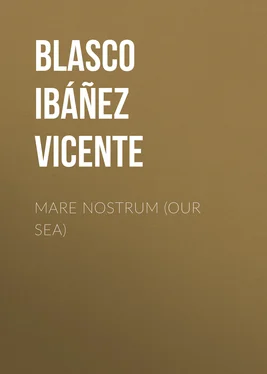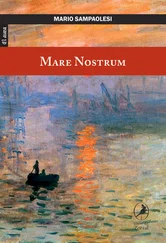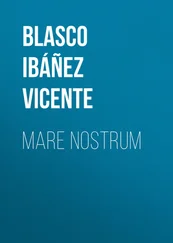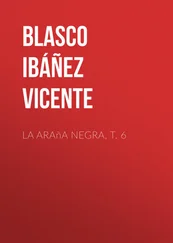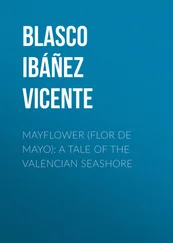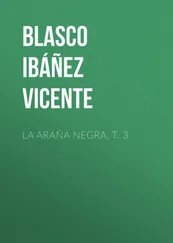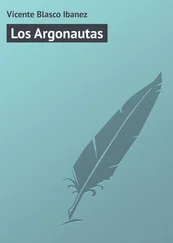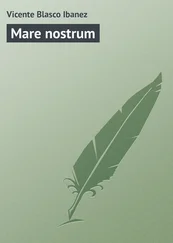Vicente Blasco Ibáñez - Mare Nostrum (Our Sea)
Здесь есть возможность читать онлайн «Vicente Blasco Ibáñez - Mare Nostrum (Our Sea)» — ознакомительный отрывок электронной книги совершенно бесплатно, а после прочтения отрывка купить полную версию. В некоторых случаях можно слушать аудио, скачать через торрент в формате fb2 и присутствует краткое содержание. Жанр: foreign_prose, foreign_antique, на английском языке. Описание произведения, (предисловие) а так же отзывы посетителей доступны на портале библиотеки ЛибКат.
- Название:Mare Nostrum (Our Sea)
- Автор:
- Жанр:
- Год:неизвестен
- ISBN:нет данных
- Рейтинг книги:5 / 5. Голосов: 1
-
Избранное:Добавить в избранное
- Отзывы:
-
Ваша оценка:
- 100
- 1
- 2
- 3
- 4
- 5
Mare Nostrum (Our Sea): краткое содержание, описание и аннотация
Предлагаем к чтению аннотацию, описание, краткое содержание или предисловие (зависит от того, что написал сам автор книги «Mare Nostrum (Our Sea)»). Если вы не нашли необходимую информацию о книге — напишите в комментариях, мы постараемся отыскать её.
Mare Nostrum (Our Sea) — читать онлайн ознакомительный отрывок
Ниже представлен текст книги, разбитый по страницам. Система сохранения места последней прочитанной страницы, позволяет с удобством читать онлайн бесплатно книгу «Mare Nostrum (Our Sea)», без необходимости каждый раз заново искать на чём Вы остановились. Поставьте закладку, и сможете в любой момент перейти на страницу, на которой закончили чтение.
Интервал:
Закладка:
"Ulysses, my son!… Always think of Valencia…. Do for her all that you can…. Keep her ever in mind, always Valencia!"
He promised all that the poet wished without understanding exactly what it was that Valencia might expect from him, a simple sailor, wandering over all the seas. Labarta wished to accompany him to the door but he sank down in his seat, obedient to the affectionate despotism of his companion who was always fearing the greatest catastrophes for him.
Poor Doña Pepa!… Ferragut felt inclined to laugh and to weep at the same time upon receiving a kiss from, her withered mouth whose down had turned into pin points. It was the kiss of an old beauty who remembers the gallantry of a youthful lover, the kiss of a childless woman caressing the son she might have had.
"Poor unhappy Carmelo!… He no longer writes, he no longer reads….
Ay! what will ever become of me?…"
She always spoke of the poet's failing powers with the commiseration of a strong and healthy person, and she became terrified when thinking of the years in which she might survive her lord. Taken up with caring for him, she never even glanced at herself.
A year afterward, on returning from the Philippines, the captain found a letter from his god-father awaiting him at Port Said. Doña Pepa had died, and Labarta, working off the tearful heaviness of his low spirits, bade her farewell in a long canticle. Ulysses ran his eyes over the enclosed newspaper clipping containing the last verses of the poet. The stanzas were in Castilian. A bad sign!… After that there could be no doubt that his end must be very near.
Ferragut never again had an opportunity to see his god-father, who died while he was on one of his trips. Upon disembarking at Barcelona, Doña Cristina handed him a letter written by the poet almost in his death-agony. "Valencia, my son! Always Valencia!" And after repeating this recommendation many times, he announced that he had made his god-son his heir.
The books, the statues, all the glorious souvenirs of the poet-laureate, came to Barcelona to adorn the sailor's home. The little Telemachus amused himself pulling apart the old wreaths of the troubador, and tearing out the old prints from his volumes with the inconsequence of a lively child whose father is very far away and who knows that he is idolized by two indulgent ladies. Besides his trophies, the poet left Ulysses an old house in Valencia, some real estate and a certain amount in negotiable securities,—total, thirty thousand dollars.
The other guardian of his infancy, the vigorous Triton , seemed to be unaffected by the passing of the years. Upon his return to Barcelona, Ferragut frequently found him installed in his home, in mute hostility to Doña Cristina, devoting to Cinta and her son a part of the affection that he had formerly lavished upon Ulysses alone.
He was very desirous that the little Esteban should know the home of his great grandparents.
"You will let me have him?… You know well enough," he coaxed, "that down in the Marina men become as strong as though made of bronze. Surely you will let me have him?…"
But he quailed before the indignant gesture of the suave Doña Cristina. Entrust her grandson to the Triton , and let him awaken in him the love of maritime adventure, as he had done with Ulysses?… Behind me, thou blue devil!
The doctor used to wander around bewildered by the port of Barcelona…. Too much noisy bustle, too much movement! Walking proudly along by the side of Ulysses, he loved to recount to him the adventures of his life as a sailor and cosmopolitan vagabond. He considered his nephew the greatest of the Ferraguts, a true man of the sea like his ancestors but with the title of captain;—an adventurous rover over all oceans, as he had been, but with a place on the bridge, invested with the absolute command that responsibility and danger confer. When Ulysses reëmbarked, the Triton would take himself off to his own dominions.
"It will be next time, sure!" he would say in order to console himself for having to part with his nephew's son; and after a few months had passed by, he would reappear, each time larger, uglier, more tanned, with a silent smile which broke into words before Ulysses just as tempestuous clouds break forth in thunder claps.
Upon his return from a trip to the Black Sea, Doña Cristina announced to her son: "Your uncle has died."
The pious señora lamented as a Christian the departure of her brother-in-law, dedicating a part of her prayers to him; but she insisted with a certain cruelty in giving an account of his sad end, for she had never been able to pardon his fatal intervention in the destiny of Ulysses. He had died as he had lived,—in the sea, a victim, of his own rashness, without confession, just like any pagan.
Another legacy thus fell to Ferragut…. His uncle had gone out swimming one sunny, winter morning and had never come back. The old folks on the shore had their way of explaining how the accident had happened,—a fainting spell probably, a clash against the rocks. The Dotor was still vigorous, but the years do not pass without leaving their footprints. Some believed that he must have had a struggle with a shark or some other of the carnivorous fish that abound in the Mediterranean waters. In vain the fishermen guided their skiffs through all the twisting entrances and exits of the waters around the promontory, exploring the gloomy caves and the lower depths of crystalline transparency. No one was ever able to find the Triton's body.
Ferragut recalled the cortege of Aphrodite which the doctor had so often described to him on summer evenings, by the light of the far-away gleam of the lighthouse. Perhaps he had come upon that gay retinue of nereids, joining it forever!
This absurd supposition that Ulysses mentally formulated with a sad and incredulous smile, frequently recurred in the simple thoughts of many of the people of the Marina .
They refused to believe in his death. A wizard is never drowned. He must have found down below something very interesting and when he got tired of living in the green depths, he would probably some day come swimming back home.
No: the Dotor had not died.
And for many years afterwards the women who were going along the coast at nightfall would quicken their steps, crossing themselves upon distinguishing on the dark waters a bit of wood or a bunch of sea weed. They feared that suddenly would spring forth the Triton , bearded, dripping, spouting, returning from his excursion into the mysterious depths of the sea.
CHAPTER IV
FREYA
The name of Ulysses Ferragut began to be famous among the captains of the Spanish ports, although the nautical adventures of his early days contributed very little to this popularity. The most of them had encountered greater dangers, but they appreciated him because of the instinctive respect that energetic and simple men have for an intelligence which they consider superior to their own. Reading nothing except what pertained to their career, they used to speak with consternation of the numerous books that filled Ferragut's stateroom, many of them upon matters which appeared to them most mysterious. Some even made inexact statements in order to enlarge the prestige of their comrade.
"He knows much…. He is a lawyer as well as a sailor."
Consideration of his fortune also contributed to the general appreciation. He was an important share-holder of the company by which he was employed. His companions loved to calculate with proud exaggeration the riches of his mother, piling it up into millions.
He met friends on every ship carrying the Spanish flag, whatever might be its home port or the nationality of its crews.
Читать дальшеИнтервал:
Закладка:
Похожие книги на «Mare Nostrum (Our Sea)»
Представляем Вашему вниманию похожие книги на «Mare Nostrum (Our Sea)» списком для выбора. Мы отобрали схожую по названию и смыслу литературу в надежде предоставить читателям больше вариантов отыскать новые, интересные, ещё непрочитанные произведения.
Обсуждение, отзывы о книге «Mare Nostrum (Our Sea)» и просто собственные мнения читателей. Оставьте ваши комментарии, напишите, что Вы думаете о произведении, его смысле или главных героях. Укажите что конкретно понравилось, а что нет, и почему Вы так считаете.
